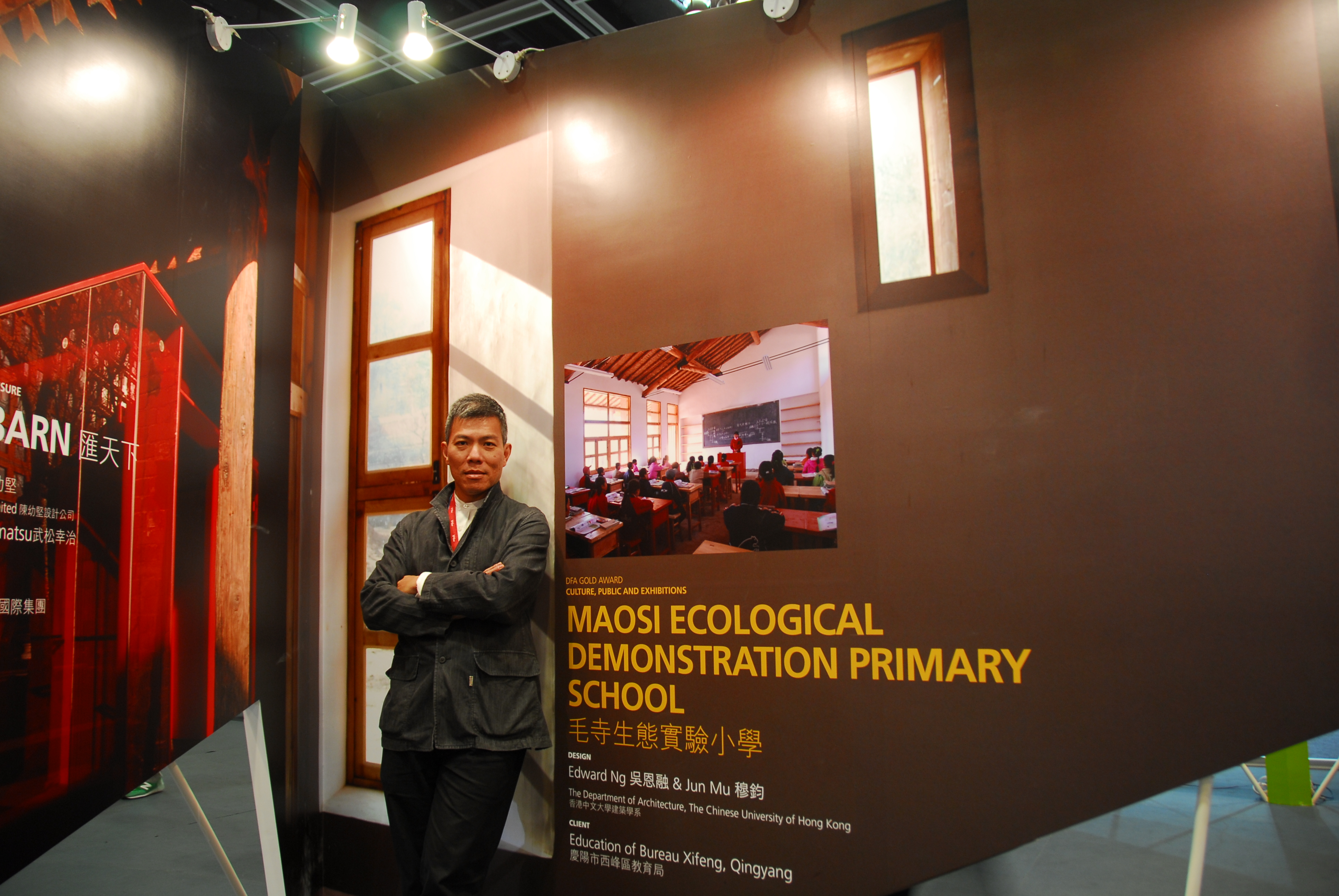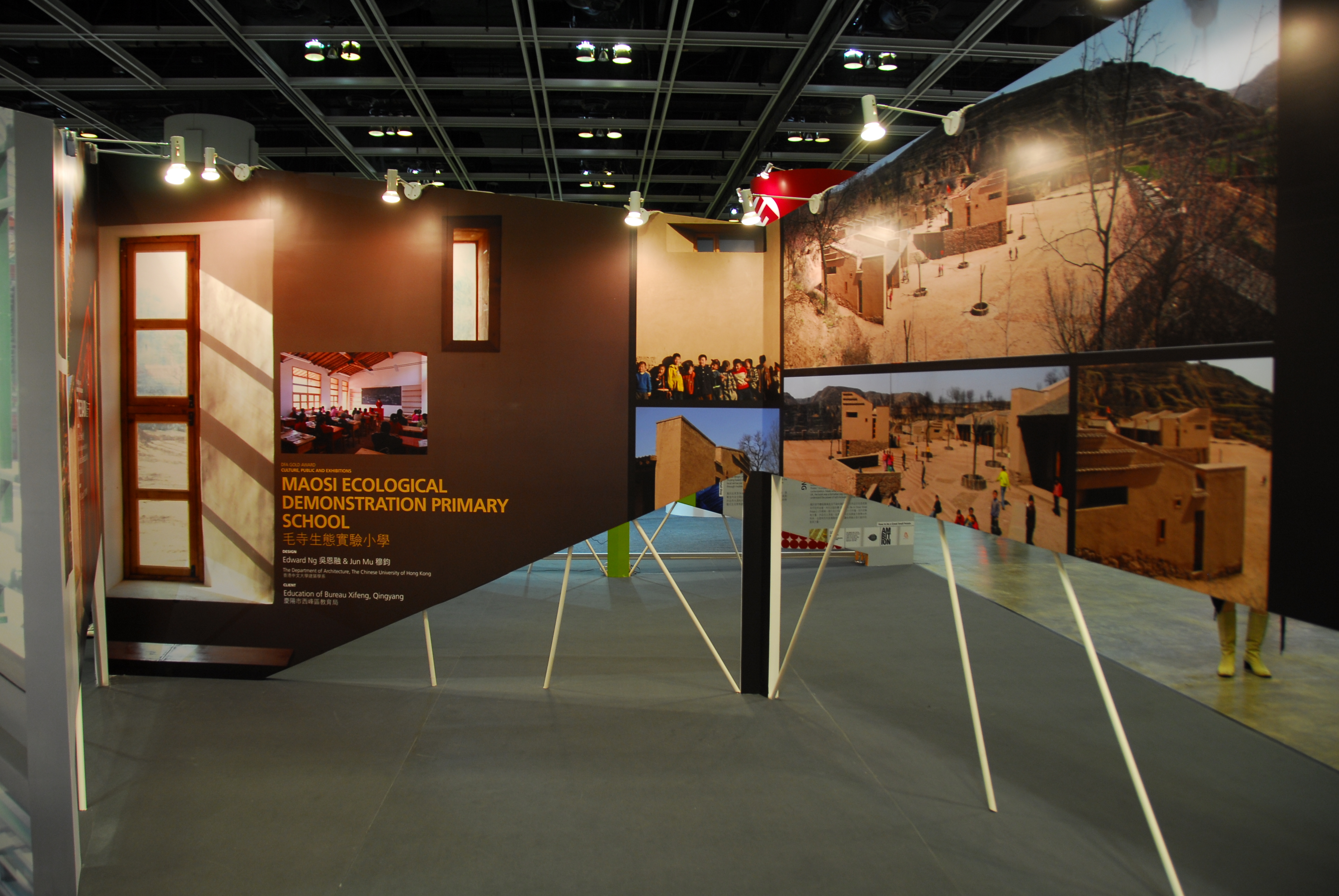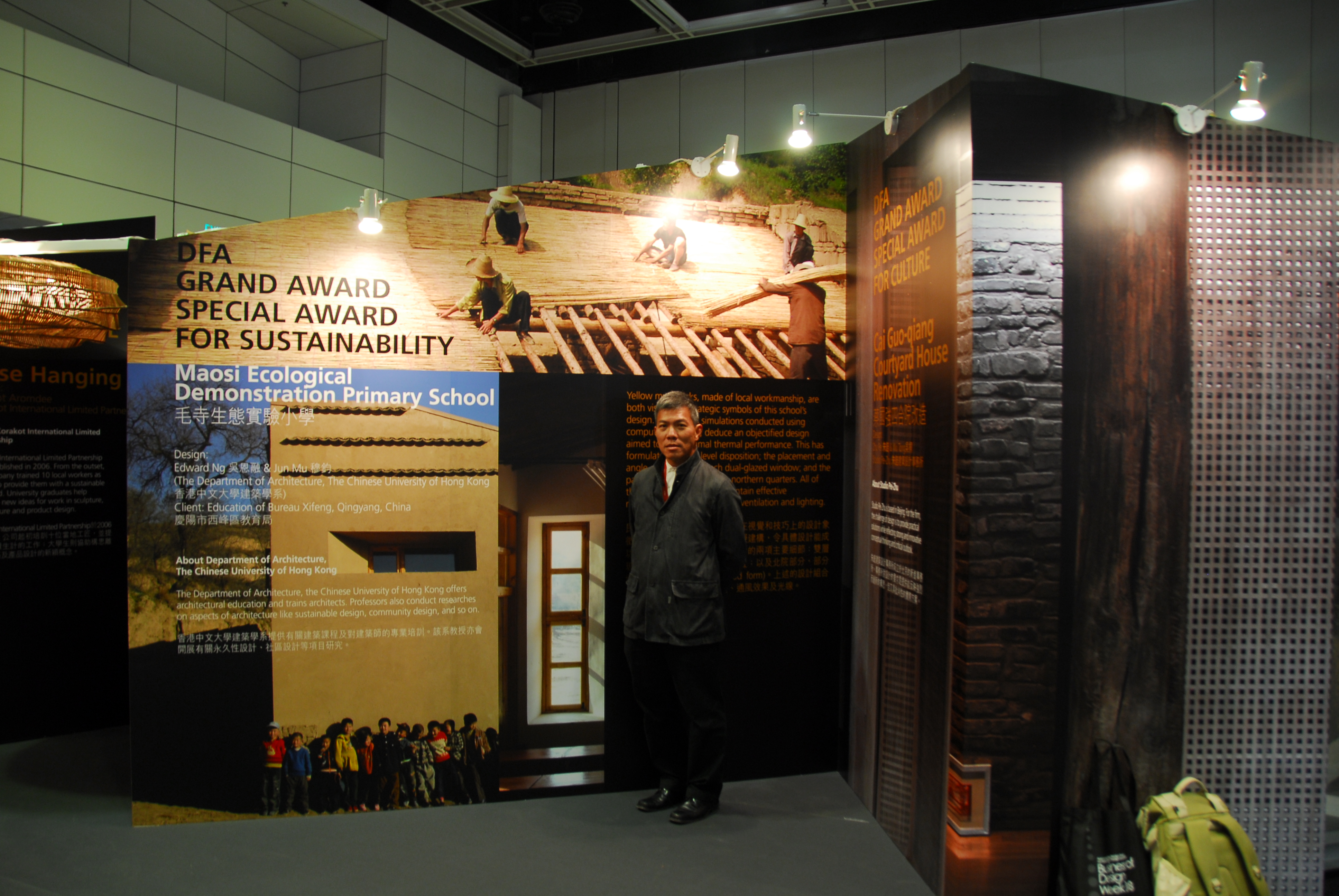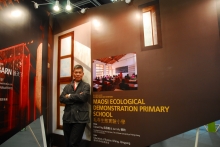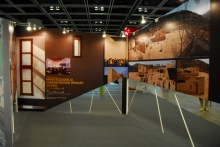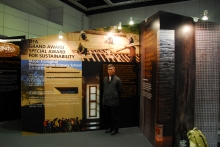CUHK
News Centre
CUHK Ecological School Project Wins Another International Honour
The “Maosi Ecological Demonstration Primary School” designed by a team led by Prof. Edward Ng of the Department of Architecture at The Chinese University of Hong Kong (CUHK) received three awards from the Design for Asia Award (DFA Award) presented at the Business of Design Week (BODW) held in Hong Kong today (12 December). They are the DFA Grand Award, the DFA Special Award for Sustainability and the DFA Gold Award, making the project one of two projects reaping the most awards at this year’s ceremony. Earlier the school project won Commendation in the learning category of the World Architecture Festival. And another of Prof. Ng’s project, “A Bridge Too Far”, received DFA Merit Recognition in 2007.
The eco-school is located in the remote village of Maosi in the Loess Plateau region, Gansu province, which is characterized by a lack of resources, and low levels of economy, education and technology. With a small population of about 2,500 villagers and 200 students, the existing schools in the village are either in caves or in simple single-storey brick huts. With funding from Hong Kong donors, Prof. Ng led a team to carry out the eco-school project in Maosi village in 2002, with an aim to creating a comfortable, desirable campus for children, and demonstrating a feasible way to build a school that can address the environmental, social and economical dimensions of sustainability.
The fragile ecological and extreme climatic conditions poses serious challenges to designers. This is further exacerbated by the poor economy. Adopting the principle of “high science and low technology”, the project emphasizes a scientific and transferable methodology comprising condition analyses, computer simulation experiments and field construction. It is found that the most basic technique of thermal mass and insulation based on earth and other natural materials is the most effective approach to ecological architecture. Both design and construction follow the principles of comfortable indoor ambience, cost-effectiveness, minimum embodied energy and ease of construction.
The eco-school is designed to maximize daylight and natural ventilation. It also adopted local traditional means of construction that have no environmental impact as most of the building materials, such as mud bricks, rubble, straw and reed, are natural products and were sourced locally with minimum embodied energy. Off-cuts were recycled back into construction. Construction was carried out by the villagers with simple tools, hence the cost of materials, manpower and equipment was much cheaper than those of other local buildings constructed using conventional methods. Yet the school performs far better ecologically in terms of thermal comfort, energy consumption and environmental impact.
Impressed and very pleased with the project, the school’s headmaster said, “Last winter was one of the worst. But in this new school, not a single piece of coal was burnt to keep warm. All our money can be spent on books.” Students are jubilant with their new school, and found it “beautiful and poetic, as well as a good place for learning.”
Prof. Edward Ng believes that sustainability in the villages will be a key issue as China develops further. “School buildings are important for showing the way, and there are so many of them yet to be built. One must do what is natural and appropriate. We have to be vigilant and build schools that are poetic and ecologically sound. Our designs now will shape the next generation of schools in China.” With the successful completion of the Maosi School, Prof. Ng hopes to drum up public support to help introduce ecological buildings in more villages on the mainland, with an aim to enhancing sustainable development in China. Prof. Ng is also the master planner of the world-acclaimed “A Bridge Too Far, A Dream Come True” project in Maosi, which he had initiated and built to provide a safe and sustainable means of crossing the river for the villagers.
Regarded as “one of the most significant annual events on the international design calendar”, BODW is Asia’s leading design event on innovation, design and brand, attracting the best of the global design world to Hong Kong to share their success stories, exchange ideas, and build network.
The esteemed DFA Award seeks to raise awareness among businesses and the public of the value of good design as an essential component of success in business, and to encourage businesses to unleash the power of design by focusing on the vital relationship and complex interplay between design and business. This year, the DFA Award received 633 entries representing 12 countries including China, Hong Kong, Taiwan, Japan, Korea, Singapore, Thailand and from as far as Europe, the UK and the US. All entries are judged by a panel formed by world-renowned experts from a variety of business, academic and design disciplines. Awards are selected based on the projects’ design, and influence and commercial success in Asia.


